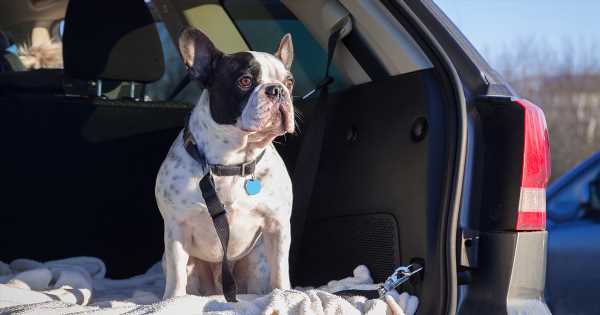

Taking the scenic route with your furry friend to get to your next destination? We love a good road trip! Though, traveling with your pet by car involves more than just loading them into the back seat and hitting the gas, especially if you’re planning to go a long distance or be away from home for a long time. Here are a few pet-safe road trip do’s and don’ts from our experts at the ASPCA Animal Poison Control Center (APCC)!
Do: Prep your pet for a long road trip. Get your pet geared up by taking them on a series of short drives first, then gradually lengthening the time spent in the car.
Don’t: Forget your pet’s rabies vaccination records. While this is generally not a problem, some states require this proof at certain interstate crossings.
Do: Keep your pet in a well-ventilated crate or carrier. The crate should be large enough for your pet to stand, sit, lie down and turn around in. Secure your pet’s crate so it won’t slide or shift in the event of an abrupt stop.
Don’t: Let your pet ride with their head out the window. If you decide to forgo the crate, never allow your pet to put their head out the window, and always keep then in the backseat in a harness attached to the seat buckle.
Do: Prep a pet-friendly travel kit. Bring food, a bowl, leash, waste bags, grooming supplies, medication, a first-aid kit and any travel documents your pet may need for the duration of both your ride and your time away from home. Also pack a favorite toy or pillow to give your pet a sense of familiarity.
Don’t: Feed your pet in a moving vehicle. This may result in your pet getting sick. Instead, feed your pet three or four hours ahead of departure.
Do: Pack plenty of water. Always opt for bottled water on a road trip. Drinking water from an area they aren’t used to could result in stomach discomfort.
Don’t: Leave your animal alone in a parked vehicle. On a hot day, even with the windows open, a parked vehicle can become a furnace in no time, and heatstroke can develop which may result in death. In cold weather, a car can act as a refrigerator, holding in the cold and causing the animal to freeze to death.
Be sure to follow these steps to insure you and your pet have a fun and safe journey to your next destination!
If you suspect that your pet ingested something potentially toxic, please call your veterinarian or the ASPCA Animal Poison Control Center at (888) 426-4435 immediately.
Source: Read Full Article



